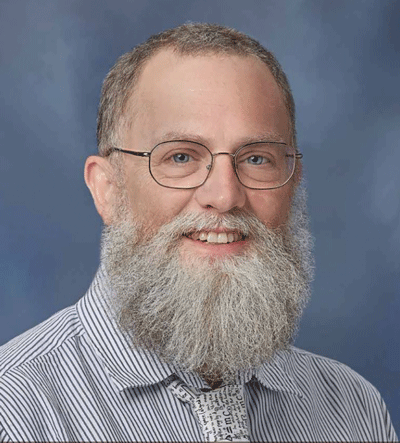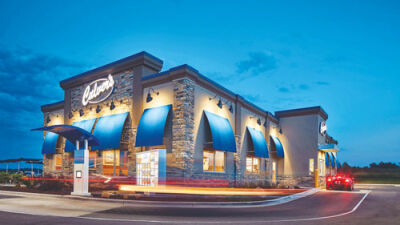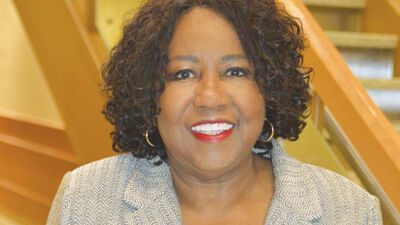
Farmington Hills resident Scott Schneider is in search of a kidney donor.
Photo provided by Scott Schneider
FARMINGTON HILLS — Approximately five years ago, Farmington Hills resident Scott Schneider scheduled a regular checkup with his doctor.
As part of the examination, Schneider, 59, had a blood test, which led to his doctor discovering that his creatinine level was rising.
“Creatinine is an indicator that the kidneys are starting to have some problems, and when that rises, the function of the kidneys is going down,” Schneider said.
Schneider was referred to a nephrologist, which is a medical doctor who specializes in kidney care and treating diseases of the kidneys.
“We tried a bunch of things and did scans to make sure that it wasn’t, like, an injury of the kidney, an infection or something like that,” Schneider said. “But the creatinine kept rising, the kidney function kept dropping and I sort of moved through the stages of kidney failure.”
When asked if it was one or both kidneys that went into failure, Schneider said, “Must be both because I’m down to something around 14%, 10%, something like that. They go through various stages of whatever percentage you are.”
Schneider, who said his kidneys began failing due to high blood pressure, discussed various stages involved with kidney failure.
“Stage one is very mild, all the way down to stage five,” he said. “I’m in stage five, which is end stage. That means at that point, I’ve got to have a transplant; there’s no coming back up through. But with this lower percentage, it’s got to be both kidneys that are affected.”
According to Schneider, he has been on a transplant list for about two years. He has been listed for a transplant with the Beaumont Multi-Organ Transplant Center, waiting for an organ to become available through a deceased person.
According to a press release from Beaumont, the average wait for a match to become available through a deceased donor can be more than five years.
Sarah Suliman is a transplant nephrologist at Beaumont.
She said that about two-thirds of organ donations come from a deceased donor. However, she said that a living donor transplant is the best option.
“The plus is, No. 1, they can get the living donor sooner rather than later,” Suliman said. “For a living donor transplant, they can get it as soon as the donor is evaluated and approved for donations, so they don’t have to wait that long. … The other thing is living-donor (kidneys) last longer … twice as long.”
Suliman said that there is a dire need for living-donor transplants.
“We have a lot of patients dying on the wait list while waiting for an organ transplant,” she said. “So it’s great to have the option of a living donor just because the organs we have are not enough for everybody who’s listed at the National Organ Transplant wait list.”
Individuals interested in exploring the process of becoming a donor can visit beaumont.org/transplant.
Schneider has been proactive when it comes to attempting to find a donor match, including via having billboard ads placed at various spots in the metro Detroit area.
However, due to potential donors being allowed to remain anonymous, he does not know what kind of responses have come from it.
Schneider is a proponent of the anonymity offered to potential donors.
“They should be able to go in, talk with the donor side, work with them, go through testing and then even make the decision, ‘You know what, this isn’t going to work for me.’ Or they might find out that they can’t donate, but all of that should be anonymous,” he said. “People have reached out to me to say, ‘Oh, I’d like to go get tested,’ and we’ve sent them to the right place, in terms of the Beaumont website and everything, but at that point, then the information stops, which it should. People should be free to be able to make those choices and free to be able to change their minds without any undue pressure, but it sort of puts me in the unfortunate situation of not necessarily knowing what’s going on.”
Suliman said that, typically, only one kidney is used for transplants.
“There are rare situations where we use two kidneys, but one healthy kidney is enough for the recipient and the donor,” she said.
Schneider explained how donors can still function with one kidney after donating one.
“Let’s say somebody donates a kidney. You might think, ‘Oh, well they’re going to drop immediately to 50%.’ That kidney will actually ramp up to 70% or so,” he said. “So that’s why people are able to donate kidneys without having to affect their lifestyle, their dietary choices and so forth. … If it’s going to (cause) problems for them afterward, there’s no way that they’re going to let them donate. So they’re very particular and very careful about screening the donors, which is good; that’s very good for the donors.”
Schneider said he started dialysis last March.
“I’m doing dialysis at night, and I’ve got what’s called peritoneal, PD dialysis, and I’ve got a catheter tube in my (abdomen) that I connect to a machine,” he said. “And so with this catheter’s tube, that’s a hose that goes through my (abdomen) wall into the peritoneal sac.”
Schneider shared what has been a challenging aspect of being on a transplant list.
“The waiting is stressful because it’s just the not knowing, and I’m not good with uncertainty; I like having things a little bit more laid out,” he said. “I’ve got (a) terrific support system around me, so I’m way more fortunate than some people are in this situation, but it still takes its toll, the waiting and the not knowing part. … I’ve sort of got a clock ticking now.”
Schneider expanded on his point.
“The kidneys are failing,” he said. “I’ve got a little bit of kidney function, but the dialysis isn’t going to work forever; I’m going to have to get a kidney transplant. … It’s going to get a lot more serious in a couple years, if something doesn’t happen soon, and it could happen earlier than that.”
Schneider said his blood is Type O.
He discussed the best-case scenario for his situation.
“A living kidney donor,” he said. “I should be able to accept that kidney a lot easier than a deceased donor kidney, and so that’s the ideal … a direct O donor kidney to me. … If I’ve got 70 from the new kidney and 10 from mine, well that’s 80%, (and) I’m walking around better than a lot of people. … If I get that kidney coming in now (and) … if I’m careful with it, which I have to be, I’ve got a good 15, 20 years that I could run with that kidney, and at that point, medical science, I’m convinced, would have something for the next stage, if I need another stage.”
Schneider said this is his 30th year at Lawrence Technological University, where he is a physics professor.
He grew up in New York, where he earned both an undergraduate and graduate degree.
Schneider had a brother, an uncle and a good friend who lived in Michigan, so he decided to seek out a job in the state.
He said Lawrence Tech “has been terrific for me.”
“It’s been a great 30-year ride so far,” he said. “I’m stuck on Zoom for my classes just because I’m not sure where my immune system is. So it’s frustrating not to be in the classes, because I enjoy being in the classes with the students.”
Aside from his own individual situation, Schneider said that it is his hope to raise awareness about organ donations in general.
“Anybody can join the kidney donation program, and anybody can check off the little box for their driver’s license to donate kidneys after they’re gone,” he said. “I did that years ago, decades ago; didn’t realize, ‘Oh, at some point in the future, you’re going to need that.’”
For more information, visit kidney4scott.com.
 Publication select ▼
Publication select ▼


























